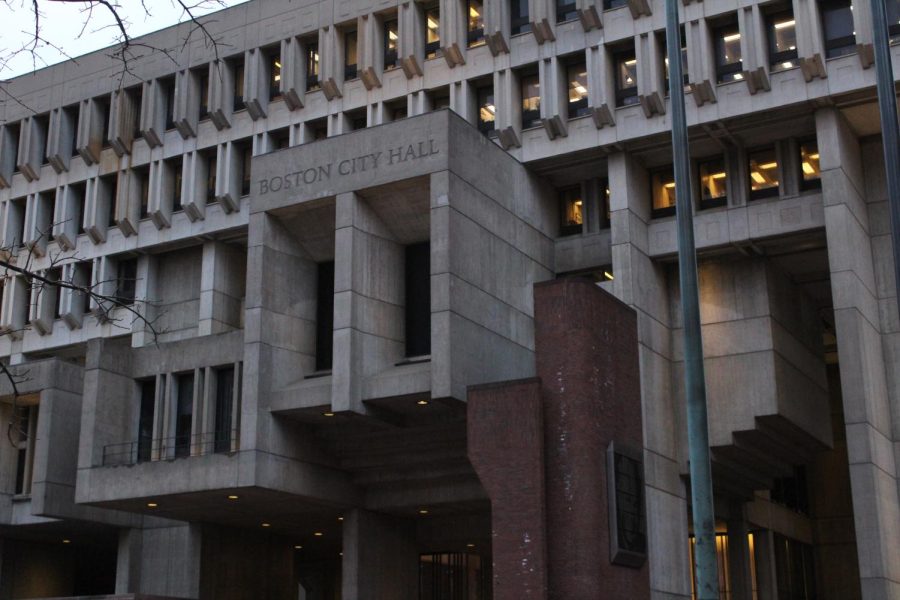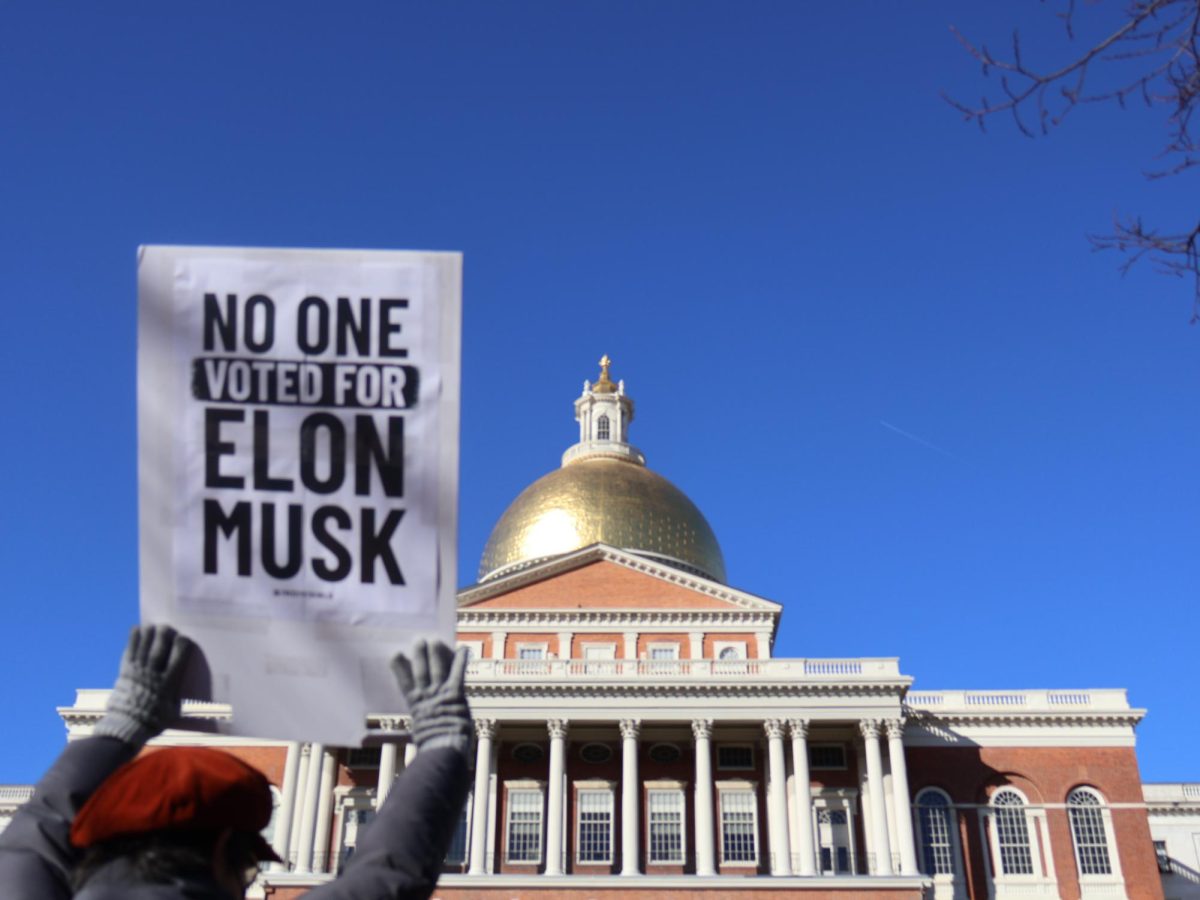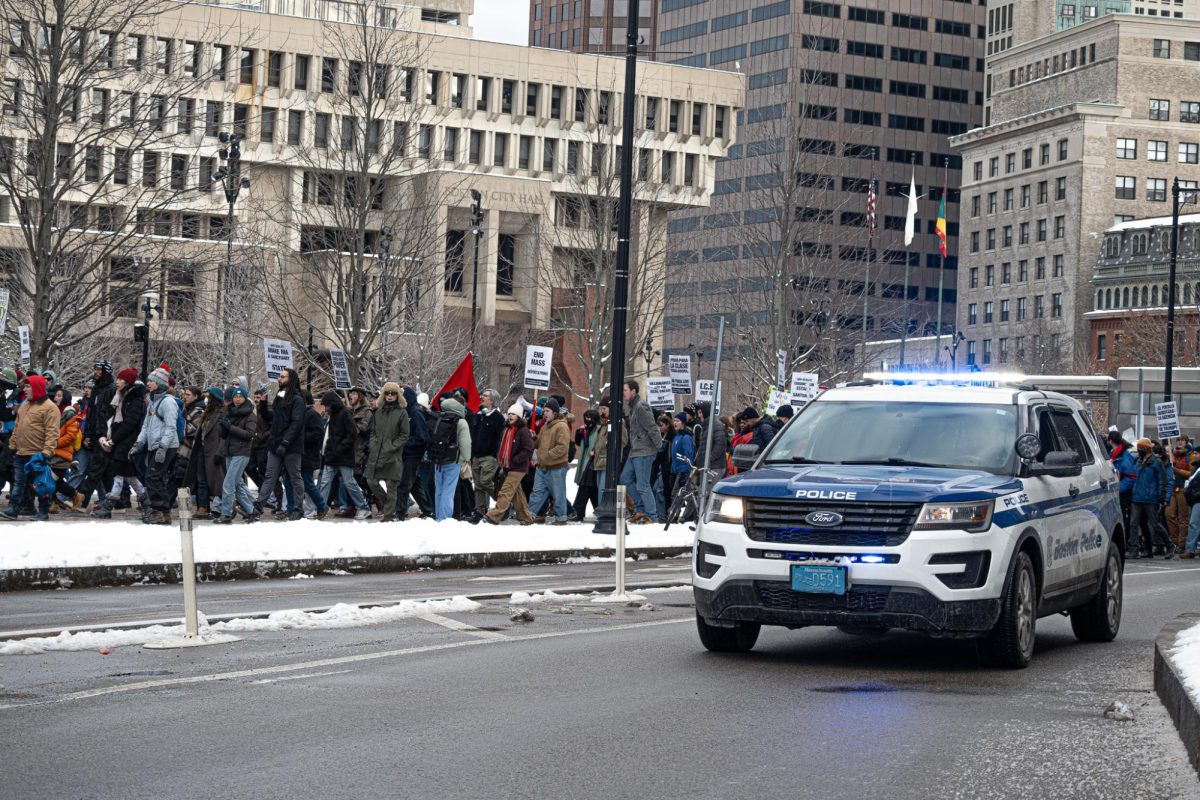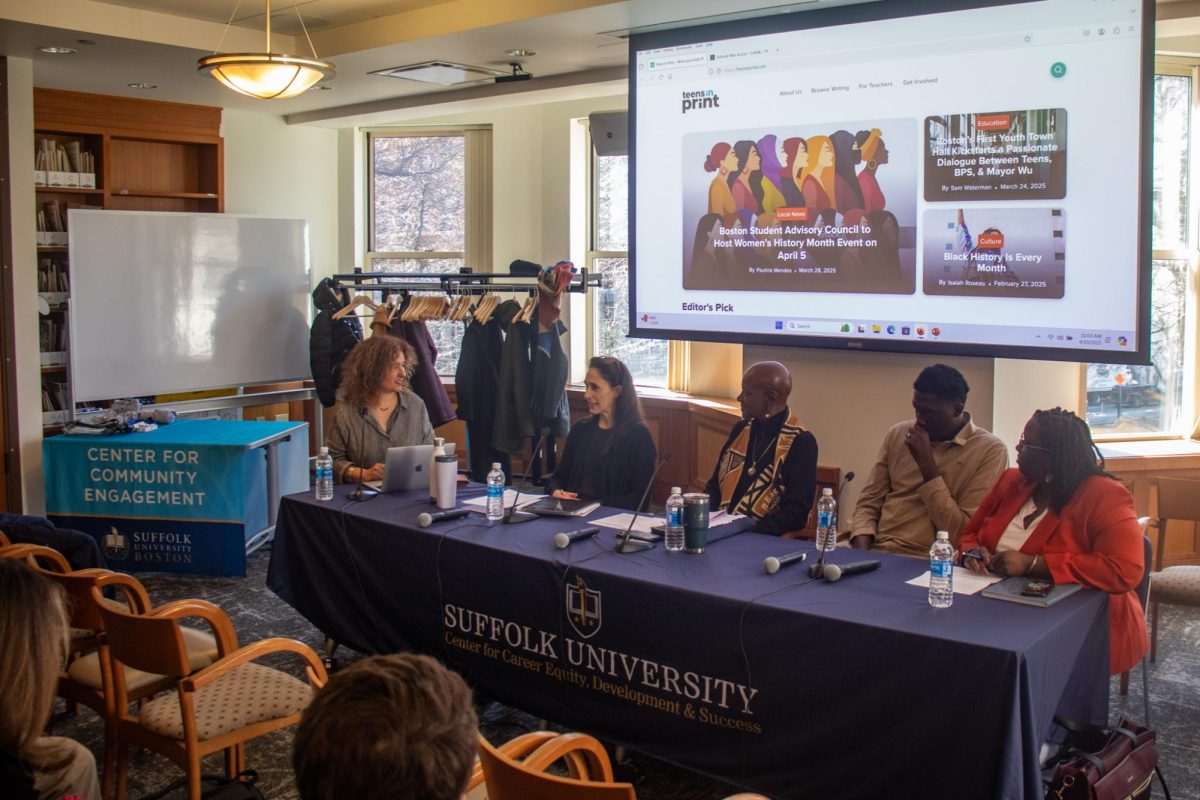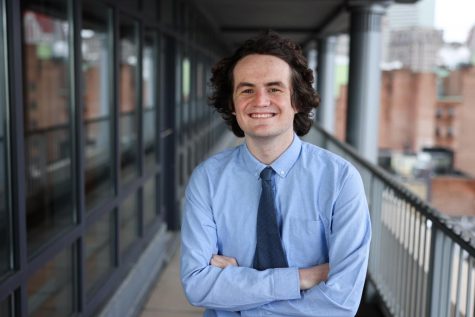Four of Boston’s at-large city council candidates attended a debate at Boston University’s Center for Computing and Data Sciences Oct. 3.
The Boston University College Democrats, the debate’s host, extended invitations to all candidates, with attendance from Incumbent Councilors Erin Murphy, Julia Mejia and Ruthzee Louijeune, along with first time candidate Henry Santana.
BUCD invited multiple other College Democrats groups to attend the candidate debate, including organizations from Suffolk University, Harvard University, Emerson College and Boston College.
At the event, candidates were asked for their opinions on a wide variety of topics, ranging from crime and housing to climate change. The candidates called for changes across the city, with one of the most echoed points being the reformation and potential expansion of the city’s PILOT program.
Throughout the debate, Mejia called on colleges and universities in the city to pay their fair share for public education.
“I think that we need to redefine what community benefits are,” Mejia said. She specifically called out institutions for not contributing enough to the surrounding communities through the PILOT Program.
Another point brought up by the candidates was the city’s lack of affordable housing and the gentrification facing many neighborhoods in the city. Murphy spoke about her experience living in Dorchester and the gentrification she has seen throughout the years in the neighborhood.
“I’m 53, right, so back when I was their age, if I had those resources I would definitely be buying a home in any neighborhood I wanted and it wouldn’t be something that was taking up all my money,” Murphy said.
Murphy went on to call on the residents of neighborhoods to work with the city on individualized development plans for new building work.
“We have to have the voices of the neighborhoods also making sure that your voices are being heard,” Murphy said.
Murphy also acknowledged the need for more housing stock throughout the city, accompanied by Louijeune commenting on Harvard University’s large land holdings in Allston, the largest holding in the neighborhood according to The Harvard Crimson.
Louijeune went on to call on universities throughout Boston to work more closely with the city to help solve the housing crisis.
A major focus of the candidates throughout the debate was climate change, with many points from each of their personal experiences.
Murphy brought up her fears of William T. Morrissey Boulevard flooding, as it did multiple times throughout the summer.
“Now it gets scary when it shuts down because it floods,” Murphy said.
Louijeune called on Boston Public Schools and the MBTA to retire their diesel bus fleet and implement electric buses.
“You get those buses to be electric buses, you help deal with the asthma issues, you realize that climate justice is transit justice is racial justice,” Louijeune said.
In March of 2022, the MBTA removed its last electric trolley buses from service on the route 71 and 73 lines in Cambridge, according to the Boston Globe. The MBTA does currently have “a goal of fully electrifying the [bus] fleet by 2040” according to the MBTA’s website.
“We should be thinking about the future and how we are building transit for the future, to make it accessible, and make it more resilient and to make it more green,” Louijeune said.
Mejia spoke about the experience of a pizza shop owner’s experience with substance abuse in the city.
“We are creating financial hardship for these businesses and we’re making it difficult for them to want to stay,” Mejia said.
Mejia also spoke about her thoughts and community input on the city’s previous proposal to ban “nips” — miniature bottles that hold 50 to 100 milliliters of alcohol. Mejia spoke about how she thought people on the streets would be concerned that they would no longer be able to drink.
“Calls that came into my office were from people saying this is racial, this is an attack on people who are poor, and this is another way of getting us out,” Mejia said.
“Mejia stood out the most to me, she did a good job, and Henry Santana,” said Matthew Marcil, president of the Suffolk University College Democrats.“I really liked how [Mejia] tackled some of the issues with drug abuse in the city, I liked her comments on how you can’t legislate people’s behavior,” Marcil said. Marcil is a sophomore at Suffolk.


